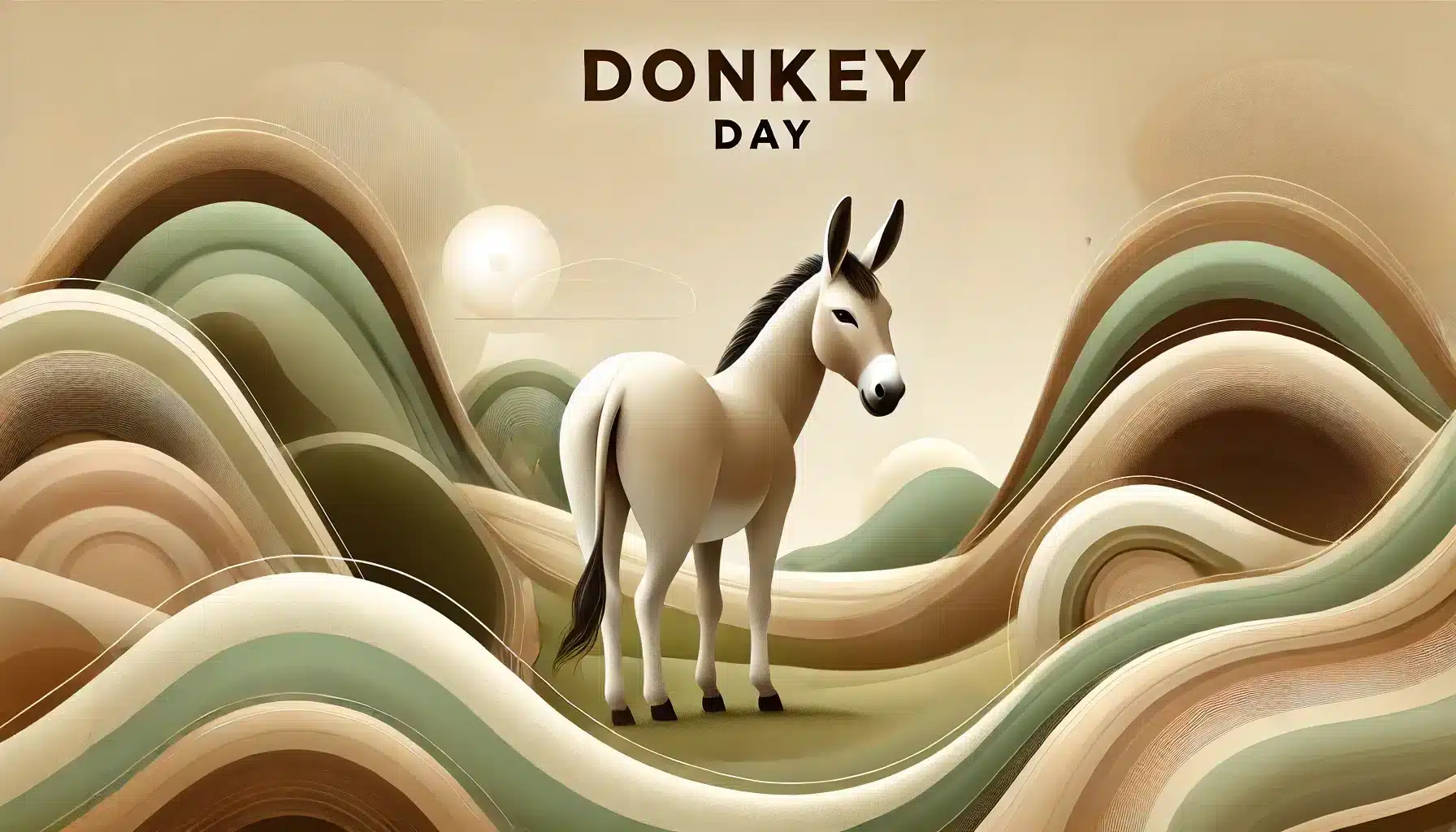What is World Donkey Day?
World Donkey Day is observed annually on May 8 worldwide. This day is dedicated to recognizing and appreciating donkeys, highlighting their significant contributions to human societies throughout history. Known for their endurance, strength, and resilience, donkeys have served as reliable working animals in agriculture, transportation, and trade, especially in harsh environments.
Donkeys are often overlooked despite their essential role in human civilization. World Donkey Day sheds light on their historical importance, their intelligence and emotional depth, and the challenges they face, including mistreatment and overwork.
History and Origin
World Donkey Day was founded by Raziq Ark, a scientist specializing in desert animals, to raise awareness about the importance of donkeys. The domesticated donkey traces its origins back to the African wild ass and has been a crucial part of human progress for thousands of years.
For centuries, donkeys have been used in agriculture, carrying heavy loads, plowing fields, and serving as essential pack animals in trade and transportation. Their ability to endure extreme conditions has made them vital in rural and mountainous regions. Despite their contributions, donkeys are often undervalued and face issues such as abandonment, overwork, and lack of proper care.
Who Participates in World Donkey Day?
- Animal welfare organizations: Promote donkey rescue, rehabilitation, and advocacy for better treatment.
- Educational institutions: Organize workshops and lectures about the historical and cultural significance of donkeys.
- Farms and agricultural groups: Highlight the role of donkeys in sustainable farming and rural livelihoods.
- Veterinary professionals: Provide guidance on donkey health, nutrition, and humane treatment.
- Sanctuaries and conservation groups: Work to protect donkeys from mistreatment and support their well-being.
Slogans and Themes
World Donkey Day promotes awareness, appreciation, and protection of donkeys. The themes often focus on their intelligence, loyalty, and importance in agriculture and transport.
Common slogans include “Hee-Haw for Donkeys,” “Celebrating Our Long-Eared Friends,” and “Donkeys: The Unsung Heroes.”
Colors
- Gray: Represents the common color of many donkeys.
- Brown: Symbolizes donkeys’ connection to nature and agriculture.
- Green: Reflects the rural environments where donkeys have traditionally worked.
Symbols
- Donkey silhouette: Recognizes the characteristic shape and posture of donkeys.
- Hoofprints: Symbolize the long journeys donkeys have taken alongside humans.
- Carrots: Represent care and nourishment, as donkeys’ favorite treat.
Patterns
- Bray soundwaves: Represent the distinctive call of donkeys.
- Ear motifs: Highlight the unique long ears that make donkeys easily recognizable.
- Pack saddle designs: Reflect the traditional role of donkeys in transportation.
Most Used Hashtags
- #WorldDonkeyDay
- #DonkeyLove
- #HeeHaw
- #DonkeyAppreciation
- #LongEaredFriends
How to Observe World Donkey Day
- Visit a donkey sanctuary: Support local rescue organizations by learning about their work and interacting with donkeys.
- Donate to donkey welfare organizations: Help fund medical care, food, and shelter for rescued donkeys.
- Educate others: Share facts, stories, and historical information about donkeys online and in schools.
- Volunteer at a farm or sanctuary: Assist in the care and rehabilitation of working or abandoned donkeys.
- Attend local events: Participate in fairs, exhibitions, or educational talks that promote donkey welfare.
Why is World Donkey Day Important?
World Donkey Day highlights the essential role donkeys have played in human history while advocating for their humane treatment and well-being. Donkeys have been reliable companions in farming, transportation, and trade, yet they often face neglect and mistreatment.
By celebrating this day, awareness is raised about donkey welfare, the importance of responsible ownership, and the need for conservation efforts. It also promotes respect for these intelligent and hardworking animals, ensuring they receive the care and recognition they deserve.
Features
- Animals
